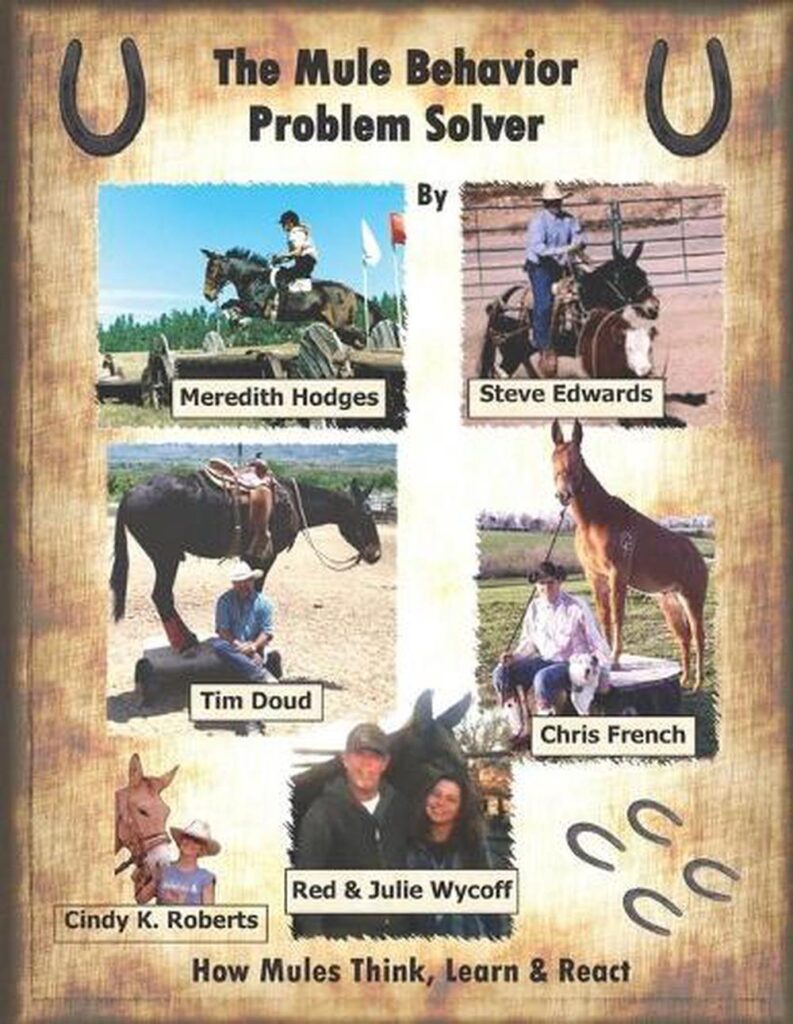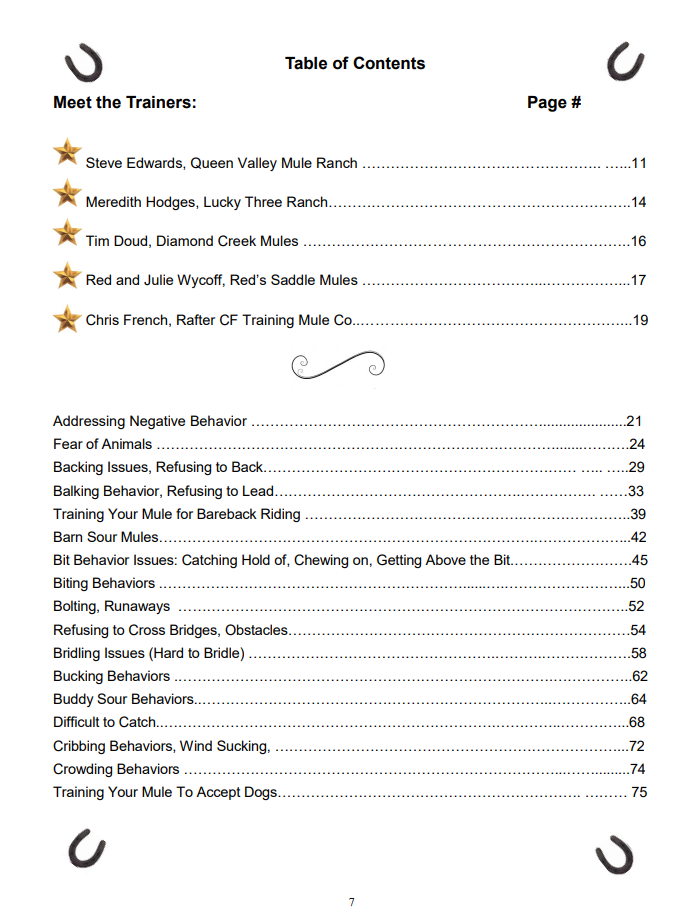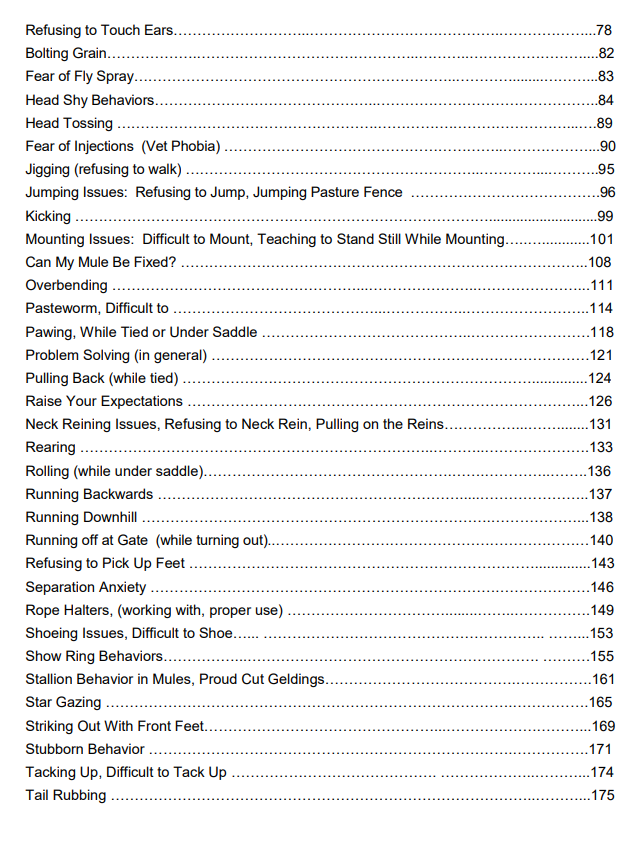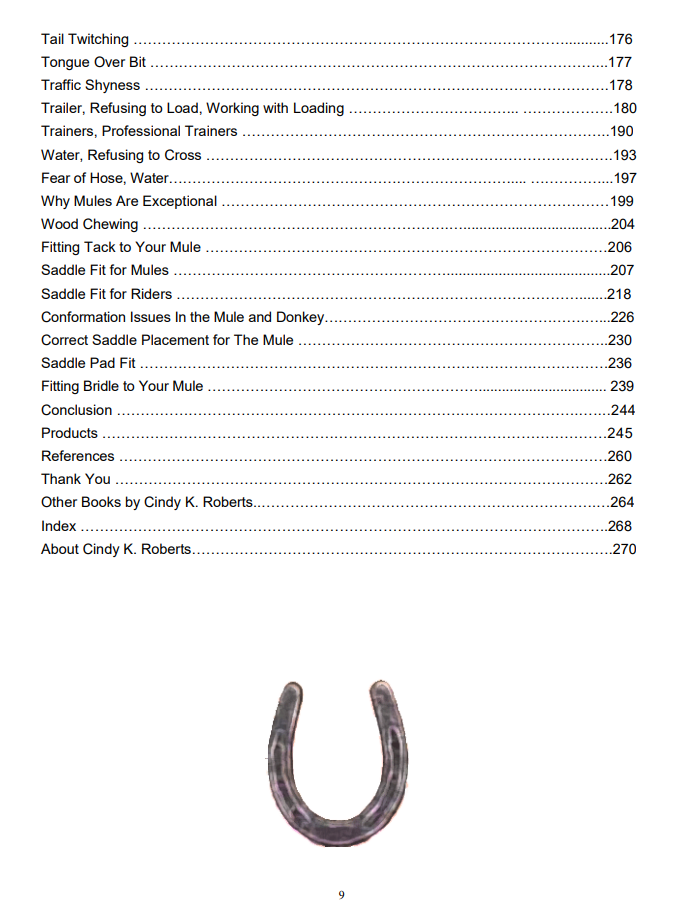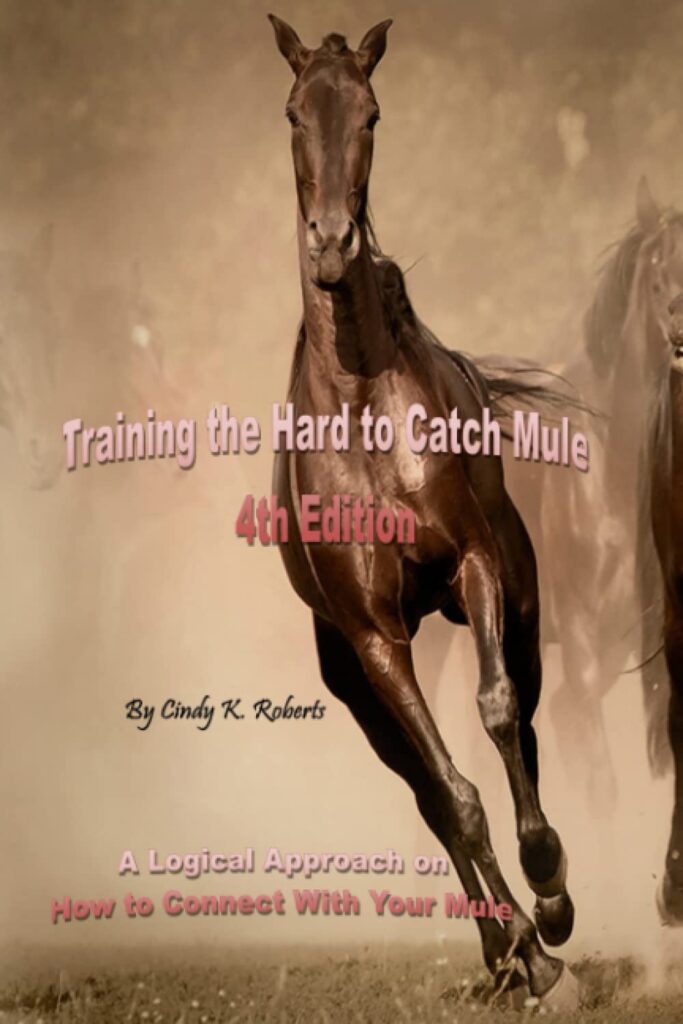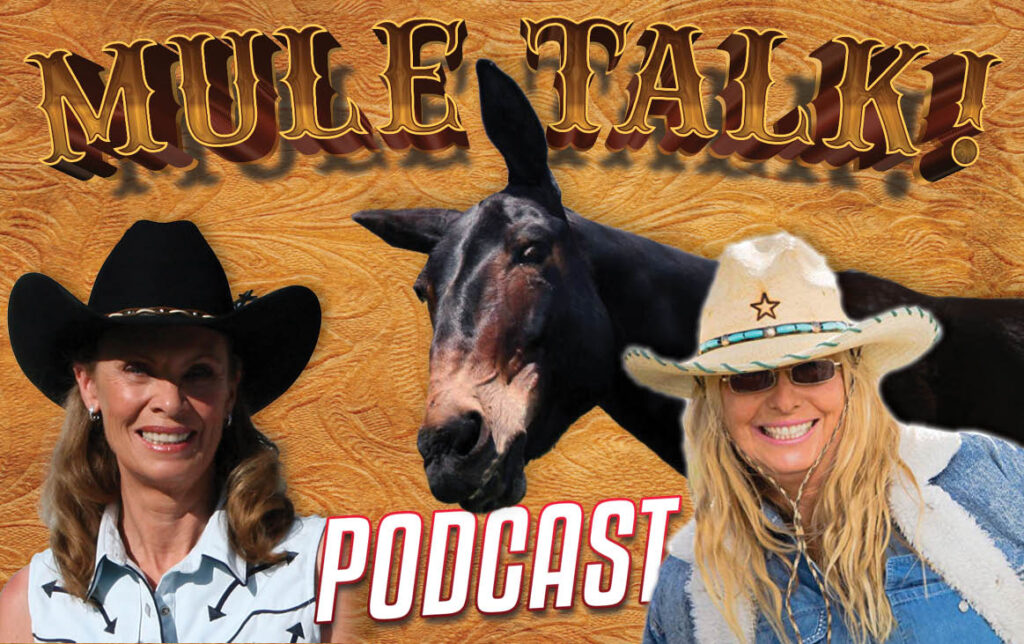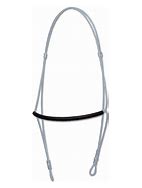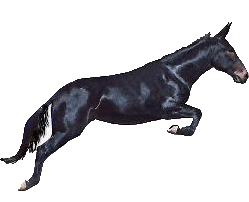Working with a mule that is distracted; it can easily be a herd member calling out to another when working with your mule in the round pen. Or it can be, that he’s very aware of new things that have been moved around the barn, a baggy blowing in the breeze…you get my drift. Some mules quickly look for the exit door when learning a new task requiring intense concentration. Knowing this, I keep the lesson short and reward on the slightest try. The focus here is keeping things favorable for the mule. Mule trainers recognize this and implement the resistance-free training methods with the reward system.

As mule trainers, we know how to work around livestock. The work is never easy but that’s why we do it. Sure, you sweat when training a horse, but horses can be pushed around, mules simply won’t tolerate it. It takes a mindset to work with them, the mind games, testing you, questioning your resume… every day is like appearing on a game show, going up against the champion.
Well pal, it’s like this. You signed up for this. There’s no whining, and you have the tenacity and grit to do this. As a trainer, you know that working with clients in the mule industry is demanding. You are putting your reputation on the line. It’s part of the job, it goes with the territory and you choose to be a winner.
As mule trainers, it is important that you recognize a distraction as just that, a distraction. When working hard at a project, we are emotionally involved and focused on getting the job done in a timely manner. If family members are involved in our work environment, we could be challenged with a situation, and things can get difficult. Criticism is not well received when working hard, feeling pressured, and pushing yourself to succeed. Not only are you dedicated to your work, but you are sincere, on the level, and forthright about your career moves. You play by the rules.
Well, not everyone plays by the rules. And now, it can get sticky. Aside from not liking it, you are aggravated in the process and the pressure takes over to a point where you feel like lashing out or calling him or her out. In the Old West, when calling out someone, you would meet your rival out in the dusty street with your six-shooter strapped on. You took up playing the piano to keep your trigger finger ready. Hmm…
Truly, in today’s world, this is a distraction to your success and doesn’t deserve your time and energy. Distractions are such energy drainers, that your time is better spent on moving forward with your business plan. As professionals working in the mule trade, we strive to focus on the things that matter most. We are concerned with:

- Positive growth in the mule industry.
- Moving forward and keeping our energy positive.
- Keeping business records current and organized.
- Taking time off when needed to refresh our own business persepctive.
- Staying committed to our training program.
- Training mules through an honest approach and not by trickery or deceit.
- Respecting livestock and providing care for them.
- Developing a partnership with our mules to gain their trust.
- Working with clients in the field, one-on-one to address their concerns.
- Living and working by a code of conduct that builds on our integrity.
- Renewing our strength to remain driven and focused.
- Documenting what works and learning from our mistakes.
- Positively using the social media platform in a positive manner to promote the mule industry.
- Surrounding ourselves with friends and family that support our dreams.
- Passing on our knowledge to others in hopes they will keep our mule legacy ongoing.
- Establishing a reliable team with a skillset in training mules, to assist when needed.
- Being supportive to others in the mule industry.
- Challenging ourselves to perform better.
We can easily become hard on ourselves for different reasons. Working as professionals in the mule industry is not easy, but we accept the challenges and have a work ethic. An ethic we are proud of.
Your strength and commitment is needed. It’s not all glory and glamour, we know this. It’s tough, the entire mule industry requires a winning attitude. Your passion for mules will drive you. You’re the one that our youth look up to. They want to be just like you! Your high-profile and notariety is recognized. Your character is exceptional and you reflect on your potential and ability to remain positive in the mule industry. Stay focused, maintain your integrity, and don’t allow distractions to overcome your own success…the mules need you.

